
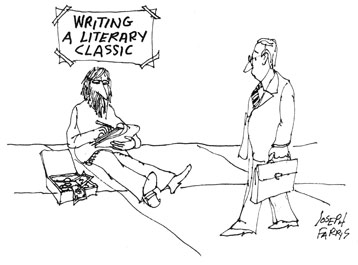
A poet’s struggle.
Ask any committed poet how he or she makes money, and you’ll receive one of two responses: "I don't" or "in many different ways." A poet’s struggle between making money and plying the art is ageless and intense, often leading to internal conflict over whether the work is too commercial or unreachable by the masses. Countless poets grapple with "the business of poetry" – a term that many consider an oxymoron.
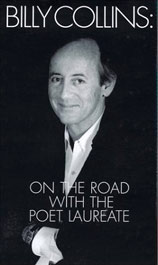
Constant promotion.
Former U.S. Poet Laureate Billy Collins is the author of nine collections and creator-editor of the acclaimed Poetry 180 series for high school poetry studies. He has sold several hundred thousand copies of his various works, but he is also a longtime college professor in New York, and each year conducts dozens of readings, keynotes several writers’ conferences, and sits on the panels of others. All of these activities promote his poetry. Until Collins rose to prominence over the past ten years, these activities also helped to finance his work. As Mark Strand, another former U.S. Poet Laureate, noted in the 2007 Writer’s Market, "Nobody makes money from poetry unless they give lots of readings."
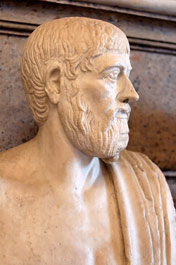
Rewarding but not lucrative.
As a stand-alone art form, poetry is and has always been the least lucrative form of writing. The reasons are financial as well as artistic. Since the best Ancient Greek bards mixed music, poetry, teaching, and drama 2,500 years ago in order to justify the courtly lifestyles given them by the nation-state, poets in virtually all civilizations and cultures have resorted to creative multi-tasking to support their art and craft. Before Greece was conquered and united by Alexander the Great, each nation-state’s ruler employed a court poet, giving those few poets job security. Most of the others, including Sappho, Aeschylus, Pindar, and Euripides, either wrote plays or contributed their verse to plays, feeding the Ancient Greeks’ insatiable desire for theater. They also read publicly in special programs and forums. Greek theater was an ideal blend of dramatic, musical, and poetic arrangement, which, upon closer inspection, was both a financial and an artistic decision.
.
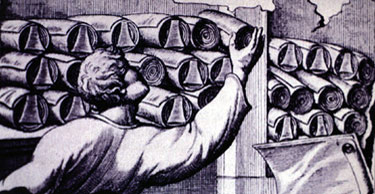
The first bookstores.
Ancient Roman poets emulated their Greek predecessors and mixed music, drama, and verse while creating a large audience for Roman literature. The mercantile Romans also launched the first bookstores, stocking them with hand-printed scrolls or stone-carved tablets. Taking printed poetry beyond the private shelves of rulers and the wealthiest citizens, these stores enabled the general public to read verse and literature for the first time. The buyers of great libraries – such as Alexandria, Ephesus, and Constantinople – hoarded originals and quality copies, so merchants hired scribes to copy Roman and Greek manuscripts and fill the growing public thirst for written material. It was in the best interest of poets to be prolific, as they received percentages of sales, the first known "royalty" arrangement.
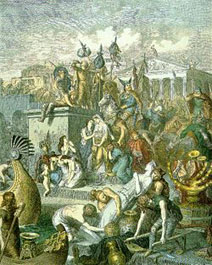
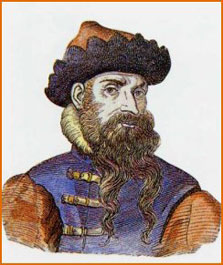
A Renaissance, a printing press, and Shakespeare.
As the 15th century Italian Renaissance began to spread to England, France, and Spain, Germany’s Johann Gutenberg created a machine that could reproduce original manuscripts. Gutenberg’s press changed the course of history, but it was nearly another century before William Shakespeare facilitated the marriage between the printing press and poetry.
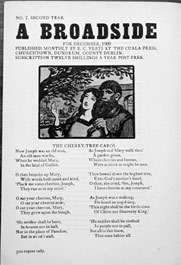
During the Elizabethan era, many poets published and sold broadsides, single sheets of paper upon which poetry was printed.
|

In addition to being a poet and artist, William Blake was a commercial engraver.
|

A glorious century of poetry – sort of.
The poets whose well-published and well-anthologized works populate classrooms at all academic levels lived in the 19th and early 20th centuries: Goethe, Blake, the Brownings, Whitman, Emerson, Thoreau, Dickinson, Wordsworth, Byron, Keats, Shelley, the Rossettis, and their peers. Because these poetic giants enjoyed larger audiences than today’s American poets (whose buying audience, Billy Collins estimates, is less than one-tenth of one percent of the population), the assumption is that they were well published and financially successful.
On the contrary, none besides the versatile Goethe (who was also a novelist, essayist, scientist, and commentary writer) and Emerson (who was an essayist and commentary writer) were well published – until after they died.
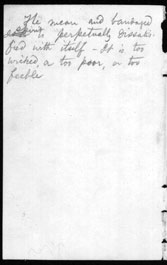
Walt Whitman, whose notes appear above, never saw the proceeds from Leaves of Grass.
|

William Carlos Williams, and other poets and artists gathered at his home, continued the legacy of the struggling poet.
|
Still, poets of the first half of the 20th century faced a daunting road, since hardcover poetry collections were expensive undertakings for both publishers and bookstores. Great poets like William Carlos Williams, Ezra Pound, and Robert Frost continued the legacy of the struggling poet, plying their teaching, translation, and freelance writing skills to support their poetry. Williams had a distinct advantage, however: he was also a practicing physician.
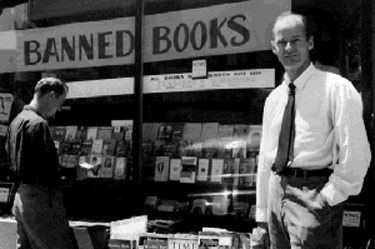
The sea change of the 1950s.
A sea change emerged in the mid-1950s – and it wasn’t Beat poetry. Rather, it created a distributing arm for the Beat poets, a group who shared a passion for open form composition, worldly engagement, and spiritual understanding. New York-born poet Lawrence Ferlinghetti (A Coney Island of the Mind), then living in San Francisco, opened City Lights, the nation’s first paperback bookstore. A haven for poetry and controversial titles, City Lights stocked several books banned by the U.S. Supreme Court, and published titles that form the backbone of current poetic study – Allen Ginsberg’s Howl chief among them.
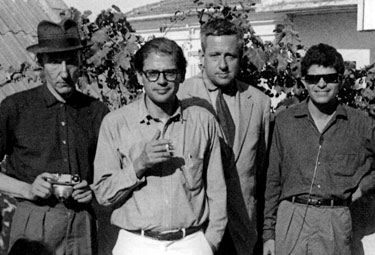
Lawrence Ferlinghetti took Beat poets like William Burroughs, Allen Ginsberg, Alan Ansen, and Gregory Corso, and promoted their work.
|
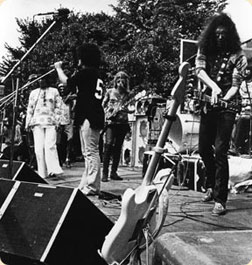
The business and craft of poetry merged when Beat poets performed opening acts for bands like Jefferson Airplane.
|
Their influence on the scene changed from the decade-long flash in the pan that typified most poetry movements to the underpinning of a cultural revolution – with book sales, performances, readings, teaching gigs, and now DVD sets and CDs, to match.
The poetry business today.
In many ways, today’s poet has more opportunities to make money from his or her work than anyone in the rich history of prosody. Myriad venues and mediums have expanded avenues of expression and potential revenue sources.
Inexpensive self-publishing or collaborative publishing ventures, along with print-on-demand publishing, enable poets to publish their collections with a minimal investment. Poets with established audiences and reputations can more easily contract with publishing houses, albeit with compensation that is pegged to sales volume.

Inexpensive self-publishing vehicles enable poets to publish their collections with a minimal investment.
|
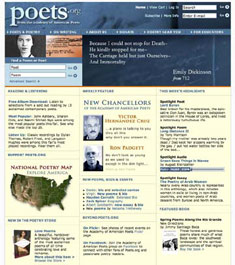
Enterprising poets can promote their work on poetry websites, as well as in poetry magazines, journals, and e-zines.
|
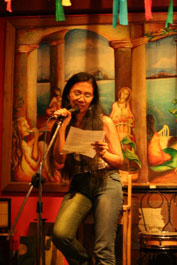
Never before have poets been afforded a more diverse range of events and sites at which to read.
|
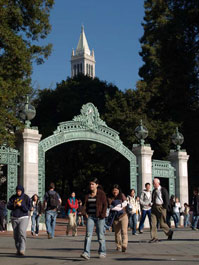
Poets with the ability to teach find work all across the academic spectrum.
|

Regardless of the promotional and distribution venues available, the business of poetry remains now as it has for three millennia – very hard work. Yet, poets have never written poems to make money. They write poems because something deep inside calls for expression, and they know there is only one thing to do – express it
